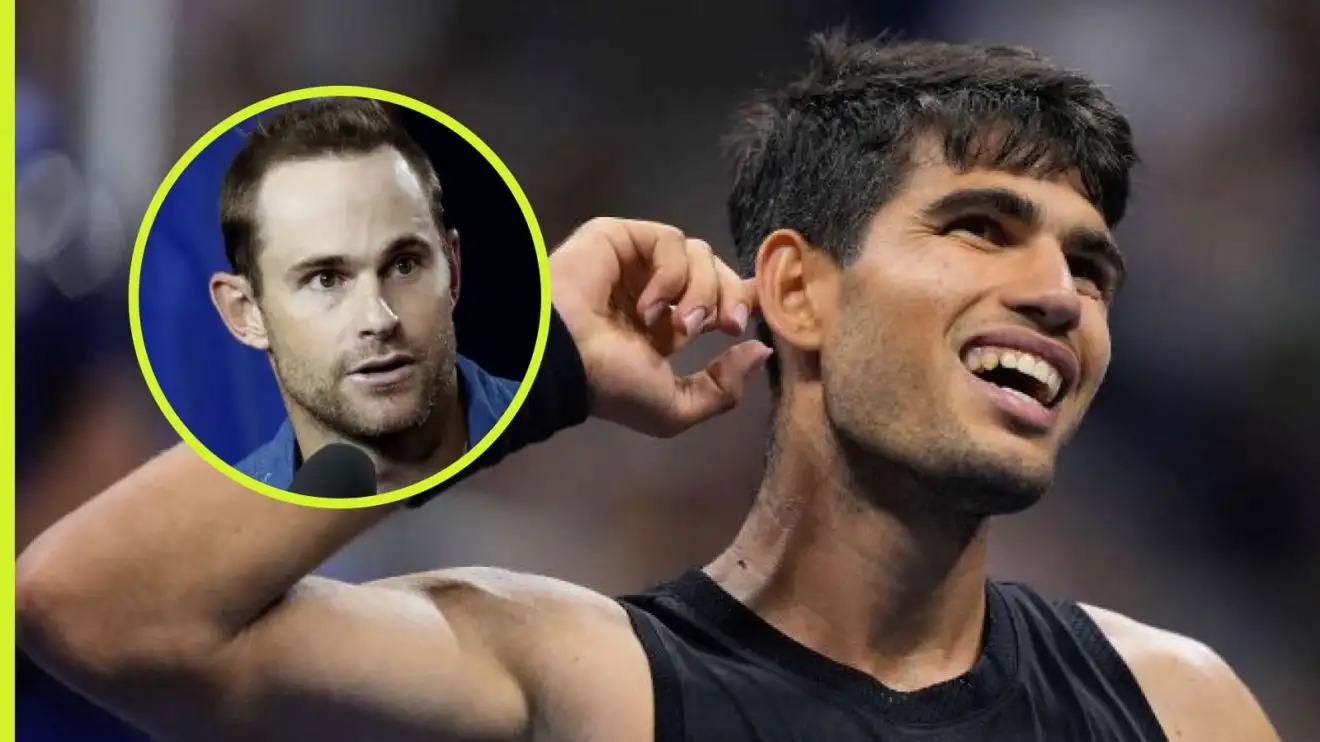
Carlos Alcaraz, the 21-year-old Spanish tennis phenom, continues to captivate the tennis world with his explosive game and unrelenting drive, fresh off a commanding Monte Carlo Masters title win that solidified his return to world No. 2. Former world No. 1 Andy Roddick recently weighed in on what sets Alcaraz apart from the legendary trio of Novak Djokovic, Rafael Nadal, and Roger Federer at the same age, offering a perspective that underscores the young star’s extraordinary versatility and the unique challenges it brings. Roddick’s insights, delivered with his trademark candor, paint a picture of a player whose boundless options on the court are both a gift and a puzzle, distinguishing him from the icons who defined an era.
Alcaraz’s Monte Carlo triumph over Lorenzo Musetti, a gritty 3-6, 6-1, 6-0 comeback, marked his sixth Masters 1000 title and his 18th ATP singles crown, a staggering haul for someone barely into their 20s. Roddick, speaking on a recent podcast, dismissed narratives of Alcaraz’s supposed struggles earlier in 2025, noting, “I like how all we are talking about this year is how Carlos has struggled a little bit. Oh, by the way, he is number one in the race.” This nod to Alcaraz’s consistency—despite setbacks like a quarterfinal exit at the Australian Open—highlights his ability to deliver under pressure, a trait he shares with the Big Three. Yet, Roddick argues that Alcaraz’s game at 21 possesses a completeness that even Djokovic, Nadal, and Federer didn’t fully exhibit at that stage.
“The problem with being able to hit every single shot on earth is that, sometimes, you try to hit every single shot on earth,” Roddick observed, pinpointing Alcaraz’s vast arsenal as a double-edged sword. Unlike Nadal, whose early career leaned heavily on his grinding style and topspin-heavy forehand, Alcaraz boasts a dizzying array of weapons—blistering groundstrokes, delicate drop shots, and a knack for audacious improvisation. Nadal at 21, Roddick noted, had a clear game plan: “I’m gonna be a pain in the butt, I’m gonna hit that forehand to your backhand, and I’m gonna go into super grind mode.” Federer relied on elegance and precision, while Djokovic mastered defense and counterpunching. Alcaraz, by contrast, seems to blend all three, with Roddick suggesting, “He’s a combination of Federer, Nadal, and Djokovic,” a rare fusion that makes him unpredictable but occasionally prone to overcomplicating points.
This versatility, while dazzling, demands discipline, an area where Roddick sees room for growth. “He always takes his shot,” Roddick said, likening Alcaraz’s aggressive mindset to Federer’s later years, when the Swiss dictated terms despite losing a step. However, Alcaraz’s error count—higher than the Big Three in their primes—stems from his willingness to go for broke. His Monte Carlo performance showcased this duality: early unforced errors gave way to a ruthless display of power and finesse, leaving Musetti overwhelmed. Roddick believes Alcaraz’s next leap lies in emulating Djokovic’s efficiency: “When he doesn’t need to be spectacular all the time, that’s when he’ll become the best version of himself.”
Alcaraz’s achievements already outshine many of his peers. With four Grand Slams—2022 US Open, 2023 Wimbledon, and 2024’s French Open and Wimbledon—he’s halfway to legends like Andre Agassi and Jimmy Connors. His win percentage before age 21 surpasses Nadal’s, Djokovic’s, and Federer’s, a stat Roddick once called “mind-boggling.” Yet, the Spaniard remains humble, crediting his team, led by coach Juan Carlos Ferrero, for keeping him grounded. Roddick, a staunch defender of Ferrero, recently argued, “Anyone calling for a coaching change doesn’t know anything about coaching,” dismissing critics who judge Alcaraz against the Big Three’s unprecedented dominance.
As Alcaraz prepares for the Barcelona Open, where he’s a two-time champion, the tennis world watches eagerly. His clay-court prowess, honed on the red dirt of Murcia, positions him as a Roland Garros favorite, but Roddick’s analysis suggests his true potential lies in mastering restraint. “He’s the most complete 19-year-old male tennis player that I’ve ever seen,” Roddick said two years ago, a sentiment that holds truer now at 21. Alcaraz’s journey is not about surpassing the Big Three but carving his own path—one where every shot is possible, and the challenge is choosing the right one.
Leave a Reply